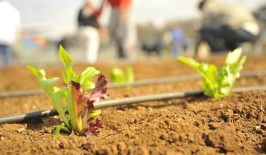As India’s urban areas steam ahead towards modernity and development, many lament the effect this has on India’s rural spots, particularly India’s rural poor. With money generated in the big cities being used to make way for India’s rising urban population, India’s rural education facilities are no match for their city counterparts.
A recent initiative aims to curb this trend, introducing tailored, programmed tablets into schools in rural areas where literacy and numeracy is generally low. The result of a joint partnership between local NGO Villages in Development and Learning (ViDal), Rice University in Texas and Nanyang Technological University in Singapore, the I-slate is a low-cost, solar-powered educational tool, designed specifically for classrooms which have little or no electricity and not enough teachers. The product launched in the Mahabubnagar district in Andhra Pradesh in March this year with around 30 students receiving a free device. Local government officials have announced plans to extend the device to cover 50,000 students over the next three years, which will account for about 10 percent of students in the Mahabubnagar area.
The device’s programs harness elements from gaming and the principles of social media as a means of interaction and maintaining attention and interest of students. Teachers are able to monitor which programs each student spends most time on, a boon for those whose contact hours with students are minimal or intermittent. Students must recharge their device using a solar panel fitted on their school building and as of early next year, the I-slate will come with a state-of-the-art built in solar panel, much like the ones fitted to solar-powered calculators.
According to a recent article in The Hindu, some parents have reported that students have foregone watching TV in favor of spending time on the I-slate.
The implementation of such a learning tool is huge coup for the district and helps to bridge the gap between education systems in urban and rural spots. Literacy rates hover at around 50 percent in Mahabubnagar, while the number of literate females is lower than that of males in the area. Check out the video below for an introduction to the I-slate by one of its co-creators, Rice University Professor of Computer Science Krishna Palem.
Sources and links:
- Villages in Development and Learning: vidal.org
- Rice University Low-cost electronic tablet proves worth in Indian classroom (video): youtube.com
Author: Anna Rees/ RESET editorial








